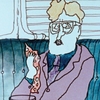Struggling Over Healthy Lifestyles
The Dutch Nutrition Education Bureau and the Individualisation of Public Health (1940-1980)
DOI:
https://doi.org/10.18352/bmgn-lchr.10672Keywords:
lifestyle, nutrition, physical exercise, food habits, educationAbstract
In the second half of the twentieth century, advice on healthy living became pervasive in Western societies. While scholars have shown how the output of health educators echoed scientific consensus and ideas about ‘good citizenship’, the impact of their interactions with government and food industry representatives, and especially their complicated relationship with audiences, remains underexplored. This article centres the experiences of the staff of the Dutch Nutrition Education Bureau – now known as the Centre for Nutrition (Voedingscentrum) – by examining health educators’ own observations about the efficacy of their work. Using sources such as internal guidelines, surveys, minutes of meetings, and annual reports, it demonstrates how the bureau struggled to position itself towards government ministries and commercial parties. Furthermore, it shows how unsuccessful attempts to reach the general population frustrated educators, and proposes that these struggles partially explain the transformation of the bureau’s lifestyle advice in the 1970s into a ‘healthist’ narrative about the responsibility of individuals. Hence, by analysing the complex interactions between health educators and other actors – in particular their audience – this article sheds light on the historical development of the genre of lifestyle advice.
Tips over ‘gezond leven’ werden in de tweede helft van de twintigste eeuw onontkoombaar in veel Westerse samenlevingen. Studies hebben aangetoond dat gezondheidsvoorlichters zich in deze periode lieten leiden door de wetenschappelijke consensus en ideeën over ‘deugdelijk burgerschap’. Er is echter minder wetenschappelijke aandacht geweest voor de impact van interacties tussen voorlichters, overheid en voedselindustrie, of voor de gecompliceerde relatie die gezondheidsvoorlichters onderhielden met hun publiek. Dit artikel focust op de ervaringen van het personeel van het Nederlandse Voorlichtingsbureau voor de Voeding – nu bekend als het Voedingscentrum – en onderzoekt hun eigen ideeën over de effectiviteit van hun promotiemateriaal. Aan de hand van bronnen als vergaderverslagen, interne richtlijnen, peilingen, en jaarverslagen, toont het aan dat het bureau twijfelde over zijn positionering richting de ministeries en commerciële partijen. Bovendien laat het zien hoe onsuccesvolle pogingen het publiek te bereiken leidden tot frustratie bij de voorlichters, en stelt het dat deze worstelingen deels verklaren waarom het bureau in de jaren zeventig gezondheid in toenemende mate presenteerde als de individuele verantwoordelijkheid van burgers zelf. Door de complexe interacties tussen gezondheidsvoorlichters en andere partijen – met name het eigen publiek – te bestuderen, biedt dit artikel inzicht in de historische ontwikkeling van het leefstijladvies-genre.
Actualiteitsparagraaf
‘Je moet het zelf maar (w)eten’?
Hoe het Nederlandse Voorlichtingsbureau voor de Voeding de strijd tegen ‘overgewicht’ verloor
Net als in 2017 zal het toekomstige nieuwe regeerakkoord ongetwijfeld een passage over ‘overgewicht’ bevatten. Zeventig jaar geleden zag het Voorlichtingsbureau voor de Voeding, de voorloper van het huidige Voedingscentrum, de bui al hangen. De steeds dikker wordende Nederlander, zo waarschuwde dit Bureau al in de jaren vijftig, bracht de volksgezondheid in gevaar. In een artikel in BMGN – Low Countries Historical Review 136 (1) laat Jon Verriet zien hoe het Voorlichtingsbureau voor de Voeding met miljoenen folders en gelikte filmpjes het tij in dit vroege stadium probeerde te keren. Uit archiefstukken blijkt echter hoe de voorlichters van dit Bureau, zelfs met hun alom bekende Schijf van Vijf, de Nederlandse burger maar moeizaam wisten te bereiken, mede door het gebrek aan steun vanuit het kabinet en de tegenwerking van de oppermachtige voedselindustrie. Het artikel volgt de groeiende frustratie van het enigszins hautaine Bureau (‘Waarom doet men niet zoals men wordt voorgelicht?’), en laat zien hoe de voorlichters in de jaren zeventig de strijd in zekere mate opgaven. Vanaf dat moment werd een gezonde levensstijl steeds vaker gepresenteerd als de verantwoordelijkheid van de burger zelf – een visie op gezondheid en ‘overgewicht’ waarmee we ook anno 2021 maar al te zeer bekend zijn.
Downloads

Additional Files
Published
Versions
- 2021-05-04 (2)
- 2021-03-30 (1)
Issue
Section
License
Copyright (c) 2021 Jon Verriet

This work is licensed under a Creative Commons Attribution-NonCommercial 4.0 International License.
Authors who publish with this journal agree to the following terms:
a) Authors retain copyright and grant the journal right of first publication with the work simultaneously licensed under a Creative Commons Attribution 4.0 International (CC BY 4.0) that allows others to share the work with an acknowledgement of the work's authorship and initial publication in this journal.
b) Authors are able to enter into separate, additional contractual arrangements for the non-exclusive distribution of the journal's published version of the work (e.g., post it to an institutional repository or publish it in a book), with an acknowledgement of its initial publication in this journal.
c) Authors are permitted to post their work online (e.g., in institutional repositories or on their website) prior to and during the submission process.
Authors are explicitly encouraged to deposit their published article in their institutional repository.








